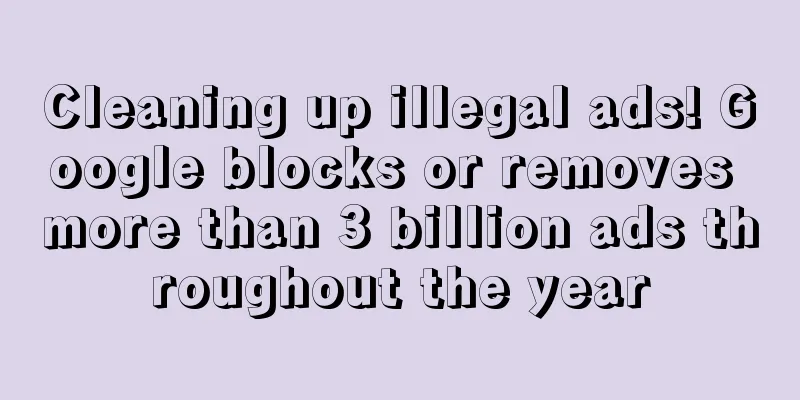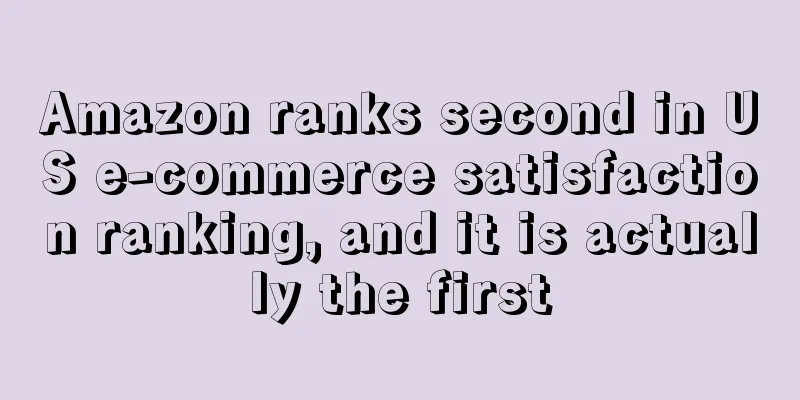Cleaning up illegal ads! Google blocks or removes more than 3 billion ads throughout the year

|
Recently, Google revealed in its annual ad safety report that it blocked or removed about 3.1 billion ads last year . Among them, about 867 million ads were blocked or removed due to abuse of the ad network , and 91 million ads were removed for violating legal requirements . Google also blocked more than 99 million COVID-19 - related ads throughout the year , including ads for miracle cures , N95 masks , fake vaccine reagents, and more.
In addition, Google restricted 6.4 billion ads last year that were deemed "legally or culturally sensitive . " 550 million restricted ads violated legal requirements related to regulated industries, including 80 million ads placed by alcohol brands. These restricted ads are not removed from the platform but are “only allowed on a limited basis.” In the words of Scott Spencer, VP of Ads Privacy and Safety : “Limiting ads allows us to tailor our approach based on geography, local laws, and our certification program so that approved ads are only shown where appropriate, regulated, and legal.” In terms of content moderation, Google added or updated 40 policies for advertisers and publishers in 2020 and removed ads from 1.3 billion publisher web pages, up from only 21 million in 2019 . Google has also cracked down on fraud and introduced an advertiser identity verification program and a business operations verification program to detect promotion of non-existent businesses, fraudulent ads, etc. With the support of these new policies, the number of ad accounts suspended for policy violations increased from 1 million to 1.7 million last year . Of the approximately 3.1 billion ads blocked or removed , 101 million of them were due to violations of Google's misrepresentation policy. Not only Google, but major platforms are also actively controlling false information on their platforms, such as Facebook. Facebook said recently that it shut down 1.3 billion fake accounts between October and December and had more than 35,000 staff members to deal with misinformation on the platform . The company also said in a blog post that it removed more than 12 million pieces of content related to COVID-19 and vaccines that had been flagged as misinformation by global health experts. In summary, sellers need to pay attention to the fact that they must comply with platform policies when placing advertisements, and they should also be cautious when placing advertisements involving sensitive topics. advertise |
<<: The annual revenue of American furniture brands fell by 13%. Here are the reasons
>>: eBay Announcement: Important Updates to SpeedPAK Logistics Management Policy
Recommend
Return to the first market! Can Wish get out of the predicament after the change of leadership?
It seems that I haven’t heard any sellers mention...
Attention! Dunhuang.com will fully upgrade its seller service system
Recently, Dunhuang.com released a new announcemen...
What is Sellgo? Sellgo Review, Features
Sellgo is in the business of growing Amazon seller...
What is AMZAlert
AMZAlert provides 24-hour monitoring with detaile...
With over 580,000 SKUs on sale, Santai Shares suspends its IPO!
Under the influence of the epidemic, the cross-bo...
What is Enjoy Cross-border E-commerce? Enjoy Cross-border E-commerce Review, Features
Enjoy Cross-border E-commerce is an e-commerce cr...
A young man born in the 1980s started a business and his revenue exceeded one million US dollars in half a year!
The small home appliance market continues to prod...
Amazon recalls tens of thousands of mattresses due to self-operated brands
Product recalls are not uncommon, and many of the...
What is Neiman Marcus? Neiman Marcus Review, Features
Neiman Marcus is a high-end department store chain...
Mexico's online shopping transaction volume during the peak season reached US$1.51 billion, with fashion being the most popular!
" El Buen Fin " is a local shopping fes...
Losses exceed $100 million! Amazon employees were paid to cheat sellers...
Affected by the wave of account bans, the latest ...
Visits increased by 11,000%! Temu continues to surge in Brazil
It is understood that Temu has currently expanded...
With nearly 500,000 orders sold in a year, they have achieved “sales freedom”!
In the new incremental market, they are living li...
Indonesia is booming and has become TikTok's second largest market
" Your favorite influencer just bought a new...
What is Wanli Niu & Wanli Niu Review
Wanliniu is a SaaS software brand under Hangzhou ...









